- Festival
15th Noorderlicht International Photofestival 2008
 A new Eastern Europe arose after 1989. The Iron Curtain disappeared, the street scene changed unrecognizably. Some countries disintegrated, a majority have become members of the European Union. After four decades of Communism, capitalism is the new ideology. Individualism has replaced collectivism, opposition politics is again permitted. The heroic worker has had to become a critical consumer.
As a mirror held up to Behind Walls, a second exhibition, Beyond Walls, provides a picture of Eastern Europe after the fall of the Iron Curtain. Left opposes right, nostalgia for the old days faces off against the blessings of capitalism. Among the remains of the Communist era - from the gray architecture to the discrimination against ethnic groups - a frantic search for a new identity is going on.
These changes also leave th...
A new Eastern Europe arose after 1989. The Iron Curtain disappeared, the street scene changed unrecognizably. Some countries disintegrated, a majority have become members of the European Union. After four decades of Communism, capitalism is the new ideology. Individualism has replaced collectivism, opposition politics is again permitted. The heroic worker has had to become a critical consumer.
As a mirror held up to Behind Walls, a second exhibition, Beyond Walls, provides a picture of Eastern Europe after the fall of the Iron Curtain. Left opposes right, nostalgia for the old days faces off against the blessings of capitalism. Among the remains of the Communist era - from the gray architecture to the discrimination against ethnic groups - a frantic search for a new identity is going on.
These changes also leave th... - Exposition
At the End of the Future - Erasmus Schröter
 The Berlin art dealer Jörg Maaß presents a solo exhibition of works by Leipzig photographer Erasmus Schröter in conjunction with the 6th European Month of Photography.
The exhibition focuses exclusively on the color images of Schröter’s long term project “Komparsen“ (“Extras”). For the first time, prints of the works in the series are presented in smaller formats, published exclusively and in a limited edition by Kunsthandel Jörg Maaß.
Erasmus Schröter creates a unique interplay between staged and documentary photography by using elaborate lighting to draw to the surface what is hidden and placing it center stage. He doesn’t chose glamorous professional models for his series “Komparsen” but often finds average people of the Saxony ...
The Berlin art dealer Jörg Maaß presents a solo exhibition of works by Leipzig photographer Erasmus Schröter in conjunction with the 6th European Month of Photography.
The exhibition focuses exclusively on the color images of Schröter’s long term project “Komparsen“ (“Extras”). For the first time, prints of the works in the series are presented in smaller formats, published exclusively and in a limited edition by Kunsthandel Jörg Maaß.
Erasmus Schröter creates a unique interplay between staged and documentary photography by using elaborate lighting to draw to the surface what is hidden and placing it center stage. He doesn’t chose glamorous professional models for his series “Komparsen” but often finds average people of the Saxony ... - Exposition
Transition Stage Portraits and Sequences 1980-1990
 "Übergangsgesellschaft" (Transition Stage) is an exhibition of photographs produced in the 1980s in the GDR. The works, which avoid pathos, are at once poetical and punctilious in the way they depict the mood of those momentous years.
In selecting pictures for the exhibition the Academy was not primarily concerned with the fall of the Wall, the demonstrations that preceded it or a chronicle of the popular movement. The exhibition focuses on the far-reaching changes, atmospheric and political, that were exploding the canonical rules governing image and were informing a new subjectivity in the work of artists. One theory posited by the exhibition is that it was precisely these changes that laid the ground for citizens' protest against the norms and aesthetics of a system. So it is that the exhibition at P...
"Übergangsgesellschaft" (Transition Stage) is an exhibition of photographs produced in the 1980s in the GDR. The works, which avoid pathos, are at once poetical and punctilious in the way they depict the mood of those momentous years.
In selecting pictures for the exhibition the Academy was not primarily concerned with the fall of the Wall, the demonstrations that preceded it or a chronicle of the popular movement. The exhibition focuses on the far-reaching changes, atmospheric and political, that were exploding the canonical rules governing image and were informing a new subjectivity in the work of artists. One theory posited by the exhibition is that it was precisely these changes that laid the ground for citizens' protest against the norms and aesthetics of a system. So it is that the exhibition at P... - Exposition
Übergangsgesellschaft (Transition Stage) - Portraits and Sequences 1980-1990
 "Übergangsgesellschaft" (Transition Stage) is an exhibition of photographs produced in the 1980s in the GDR. The works, which avoid pathos, are at once poetical and punctilious in the way they depict the mood of those momentous years.
In selecting pictures for the exhibition the Academy was not primarily concerned with the fall of the Wall, the demonstrations that preceded it or a chronicle of the popular movement. The exhibition focuses on the far-reaching changes, atmospheric and political, that were exploding the canonical rules governing image and were informing a new subjectivity in the work of artists. One theory posited by the exhibition is that it was precisely these changes that laid the ground for citizens' protest against the norms and aesthetics of a system. So it is that the exhibition at P...
"Übergangsgesellschaft" (Transition Stage) is an exhibition of photographs produced in the 1980s in the GDR. The works, which avoid pathos, are at once poetical and punctilious in the way they depict the mood of those momentous years.
In selecting pictures for the exhibition the Academy was not primarily concerned with the fall of the Wall, the demonstrations that preceded it or a chronicle of the popular movement. The exhibition focuses on the far-reaching changes, atmospheric and political, that were exploding the canonical rules governing image and were informing a new subjectivity in the work of artists. One theory posited by the exhibition is that it was precisely these changes that laid the ground for citizens' protest against the norms and aesthetics of a system. So it is that the exhibition at P... - Exposition
EAST (for the record) - Carte Blanche VI: VNG Verbundnetz Gas AG
 The sixth exhibition in the scope of the Carte Blanche project of the GfZK presents the current expansion of the photographic collection of VNG - Verbundnetz Gas AG and a cross-section of its collection of paintings and graphic art.
The photo collection of Verbundnetz Gas AG is one of the most significant collections of contemporary photographic art in Germany. It is a reflection of a period of social transition, documenting the radical political, economic and social changes that took place in the former GDR between 1992 and 2000. This detailed insight into the recent history of Germany has a focus upon landscape and industry, based largely upon a comparative view of the periods before and after 1989. However, key historic events of autumn 1989 have remained outside of the spotlight thus far. Viewed from different bio...
The sixth exhibition in the scope of the Carte Blanche project of the GfZK presents the current expansion of the photographic collection of VNG - Verbundnetz Gas AG and a cross-section of its collection of paintings and graphic art.
The photo collection of Verbundnetz Gas AG is one of the most significant collections of contemporary photographic art in Germany. It is a reflection of a period of social transition, documenting the radical political, economic and social changes that took place in the former GDR between 1992 and 2000. This detailed insight into the recent history of Germany has a focus upon landscape and industry, based largely upon a comparative view of the periods before and after 1989. However, key historic events of autumn 1989 have remained outside of the spotlight thus far. Viewed from different bio...
Modifier l'image
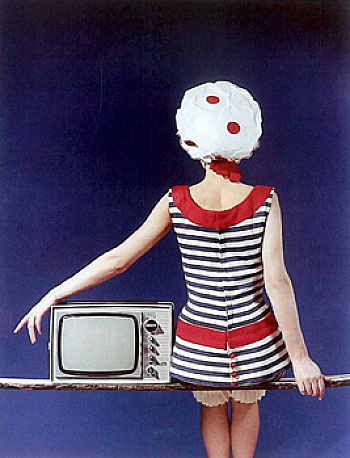 A new Eastern Europe arose after 1989. The Iron Curtain disappeared, the street scene changed unrecognizably. Some countries disintegrated, a majority have become members of the European Union. After four decades of Communism, capitalism is the new ideology. Individualism has replaced collectivism, opposition politics is again permitted. The heroic worker has had to become a critical consumer.
As a mirror held up to Behind Walls, a second exhibition, Beyond Walls, provides a picture of Eastern Europe after the fall of the Iron Curtain. Left opposes right, nostalgia for the old days faces off against the blessings of capitalism. Among the remains of the Communist era - from the gray architecture to the discrimination against ethnic groups - a frantic search for a new identity is going on.
These changes also leave th...
A new Eastern Europe arose after 1989. The Iron Curtain disappeared, the street scene changed unrecognizably. Some countries disintegrated, a majority have become members of the European Union. After four decades of Communism, capitalism is the new ideology. Individualism has replaced collectivism, opposition politics is again permitted. The heroic worker has had to become a critical consumer.
As a mirror held up to Behind Walls, a second exhibition, Beyond Walls, provides a picture of Eastern Europe after the fall of the Iron Curtain. Left opposes right, nostalgia for the old days faces off against the blessings of capitalism. Among the remains of the Communist era - from the gray architecture to the discrimination against ethnic groups - a frantic search for a new identity is going on.
These changes also leave th...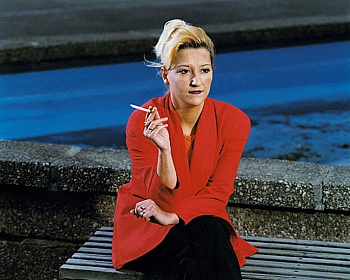 The Berlin art dealer Jörg Maaß presents a solo exhibition of works by Leipzig photographer Erasmus Schröter in conjunction with the 6th European Month of Photography.
The exhibition focuses exclusively on the color images of Schröter’s long term project “Komparsen“ (“Extras”). For the first time, prints of the works in the series are presented in smaller formats, published exclusively and in a limited edition by Kunsthandel Jörg Maaß.
Erasmus Schröter creates a unique interplay between staged and documentary photography by using elaborate lighting to draw to the surface what is hidden and placing it center stage. He doesn’t chose glamorous professional models for his series “Komparsen” but often finds average people of the Saxony ...
The Berlin art dealer Jörg Maaß presents a solo exhibition of works by Leipzig photographer Erasmus Schröter in conjunction with the 6th European Month of Photography.
The exhibition focuses exclusively on the color images of Schröter’s long term project “Komparsen“ (“Extras”). For the first time, prints of the works in the series are presented in smaller formats, published exclusively and in a limited edition by Kunsthandel Jörg Maaß.
Erasmus Schröter creates a unique interplay between staged and documentary photography by using elaborate lighting to draw to the surface what is hidden and placing it center stage. He doesn’t chose glamorous professional models for his series “Komparsen” but often finds average people of the Saxony ...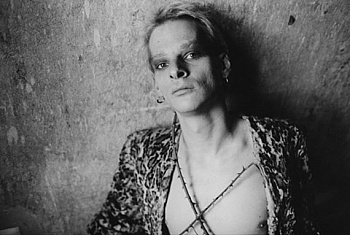 "Übergangsgesellschaft" (Transition Stage) is an exhibition of photographs produced in the 1980s in the GDR. The works, which avoid pathos, are at once poetical and punctilious in the way they depict the mood of those momentous years.
In selecting pictures for the exhibition the Academy was not primarily concerned with the fall of the Wall, the demonstrations that preceded it or a chronicle of the popular movement. The exhibition focuses on the far-reaching changes, atmospheric and political, that were exploding the canonical rules governing image and were informing a new subjectivity in the work of artists. One theory posited by the exhibition is that it was precisely these changes that laid the ground for citizens' protest against the norms and aesthetics of a system. So it is that the exhibition at P...
"Übergangsgesellschaft" (Transition Stage) is an exhibition of photographs produced in the 1980s in the GDR. The works, which avoid pathos, are at once poetical and punctilious in the way they depict the mood of those momentous years.
In selecting pictures for the exhibition the Academy was not primarily concerned with the fall of the Wall, the demonstrations that preceded it or a chronicle of the popular movement. The exhibition focuses on the far-reaching changes, atmospheric and political, that were exploding the canonical rules governing image and were informing a new subjectivity in the work of artists. One theory posited by the exhibition is that it was precisely these changes that laid the ground for citizens' protest against the norms and aesthetics of a system. So it is that the exhibition at P...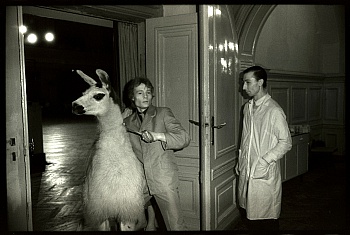 "Übergangsgesellschaft" (Transition Stage) is an exhibition of photographs produced in the 1980s in the GDR. The works, which avoid pathos, are at once poetical and punctilious in the way they depict the mood of those momentous years.
In selecting pictures for the exhibition the Academy was not primarily concerned with the fall of the Wall, the demonstrations that preceded it or a chronicle of the popular movement. The exhibition focuses on the far-reaching changes, atmospheric and political, that were exploding the canonical rules governing image and were informing a new subjectivity in the work of artists. One theory posited by the exhibition is that it was precisely these changes that laid the ground for citizens' protest against the norms and aesthetics of a system. So it is that the exhibition at P...
"Übergangsgesellschaft" (Transition Stage) is an exhibition of photographs produced in the 1980s in the GDR. The works, which avoid pathos, are at once poetical and punctilious in the way they depict the mood of those momentous years.
In selecting pictures for the exhibition the Academy was not primarily concerned with the fall of the Wall, the demonstrations that preceded it or a chronicle of the popular movement. The exhibition focuses on the far-reaching changes, atmospheric and political, that were exploding the canonical rules governing image and were informing a new subjectivity in the work of artists. One theory posited by the exhibition is that it was precisely these changes that laid the ground for citizens' protest against the norms and aesthetics of a system. So it is that the exhibition at P...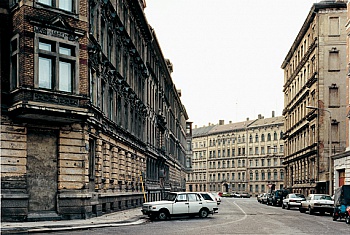 The sixth exhibition in the scope of the Carte Blanche project of the GfZK presents the current expansion of the photographic collection of VNG - Verbundnetz Gas AG and a cross-section of its collection of paintings and graphic art.
The photo collection of Verbundnetz Gas AG is one of the most significant collections of contemporary photographic art in Germany. It is a reflection of a period of social transition, documenting the radical political, economic and social changes that took place in the former GDR between 1992 and 2000. This detailed insight into the recent history of Germany has a focus upon landscape and industry, based largely upon a comparative view of the periods before and after 1989. However, key historic events of autumn 1989 have remained outside of the spotlight thus far. Viewed from different bio...
The sixth exhibition in the scope of the Carte Blanche project of the GfZK presents the current expansion of the photographic collection of VNG - Verbundnetz Gas AG and a cross-section of its collection of paintings and graphic art.
The photo collection of Verbundnetz Gas AG is one of the most significant collections of contemporary photographic art in Germany. It is a reflection of a period of social transition, documenting the radical political, economic and social changes that took place in the former GDR between 1992 and 2000. This detailed insight into the recent history of Germany has a focus upon landscape and industry, based largely upon a comparative view of the periods before and after 1989. However, key historic events of autumn 1989 have remained outside of the spotlight thus far. Viewed from different bio...